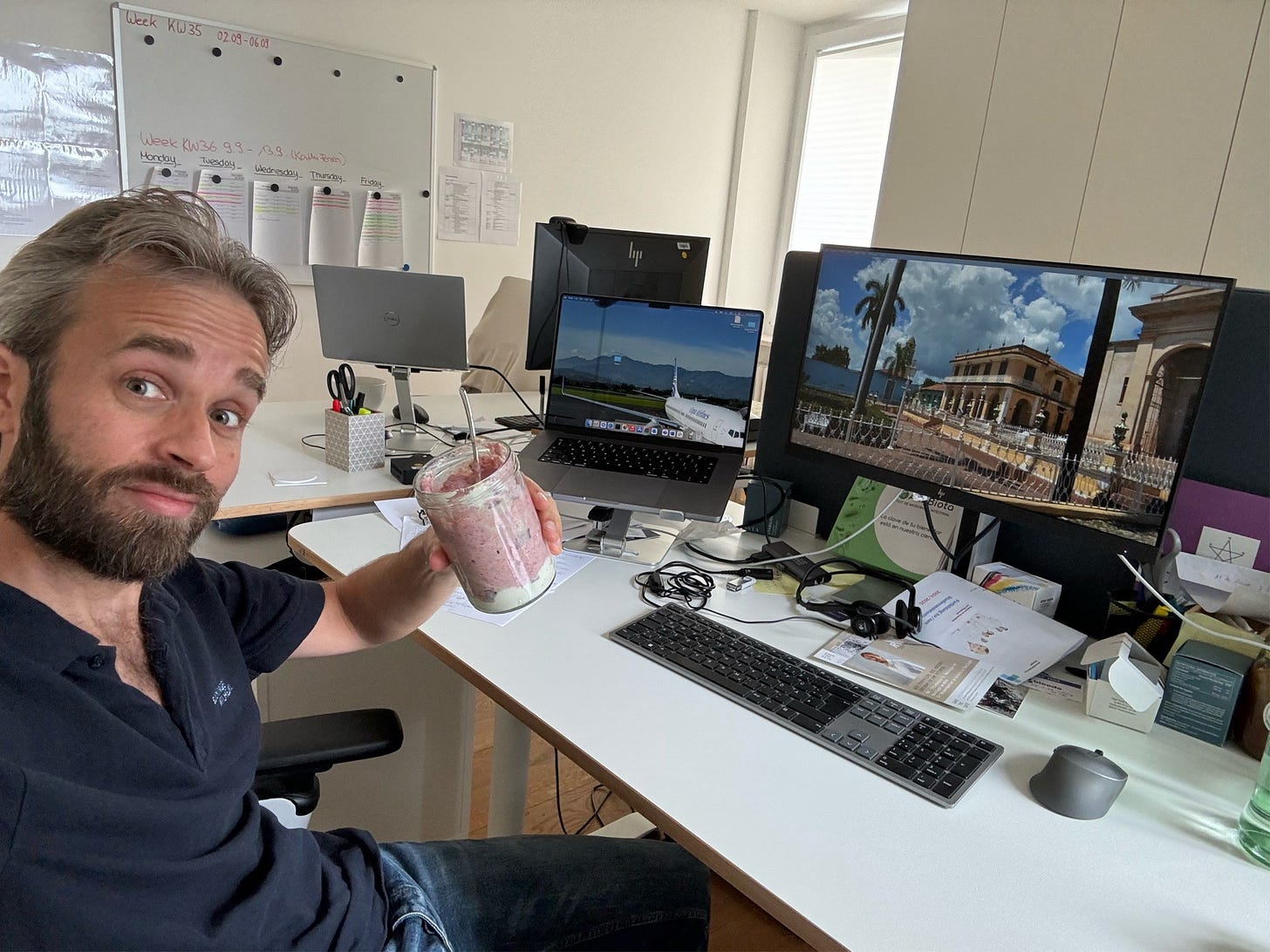What a biome expert eats for breakfast
Corn-resistant dextrin 4 "is the most exotic bit"

Dr Robin Mesnage is scientific director of the Buchinger Wilhelmi fasting clinic in Germany, and also part of a microbiome research team at King’s College in London.
We met a few years ago at a conference and we later had coffee to chat about ou…


